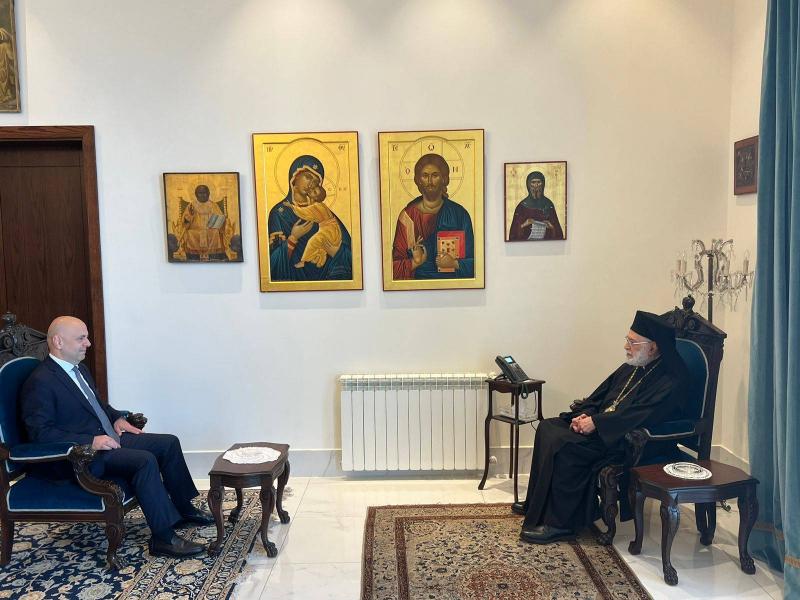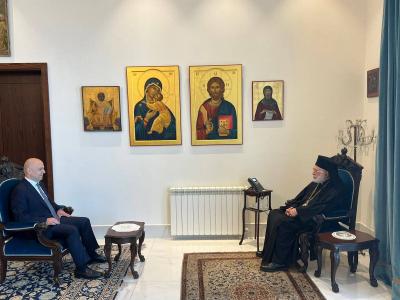Former Deputy Prime Minister Ghassan Hajjabani pointed out that "we are currently facing an old and renewed danger represented by the Syrian displacement and the new wave across the borders," stressing that "there is a significant responsibility on the officials tasked with making political decisions to cover the work on the ground, and to control the borders and prevent displacement." Hajjabani made these remarks after visiting Metropolitan Beirut and its regions for the Greek Orthodox Church, Bishop Elias Auda, where they discussed national and humanitarian affairs and urgent issues facing Lebanon.
Hajjabani affirmed that "Lebanon is a transit country, not a refuge according to the agreements signed with the United Nations, and it cannot bear any additional numbers of displaced persons," adding: "Therefore, infiltration across borders must be prevented so that entering Syrians are viewed as refugees by the international community. This is completely unacceptable. Immediate action is required from the ministers and the political authority responsible for safeguarding the Lebanese borders."
Regarding Speaker of Parliament Nabih Berri's call for a seven-party dialogue, Hajjabani said: "We hear a lot about dialogue, which in principle is a noble and positive word. However, in the way it is being presented today, it loses its positive specifications. Instead, the dialogue has turned into a precondition for some to fulfill their constitutional duties, represented by opening the Parliament through consecutive and continuous sessions until a president is elected."
He added: "We are a democratic country, and we must maintain that. We hope that all countries that advocate democracies and freedoms around the world will support this democracy, and not fall into the trap of sweet-talking about dialogue, which is not dialogue at all, but rather the imposition of a new reality and norms that undermine the constitution and replace democratic action with customary practices, as we witnessed in previous dialogues. We hope that the officials will recognize their responsibilities and that Lebanon will become a complete country with land, people, and institutions. This is what we need to work towards."
Regarding the visit of French envoy former minister Jean-Yves Le Drian, Hajjabani noted that "Le Drian does not carry anything new; the visit is a continuation of previous meetings and aims to bridge viewpoints." He added: "We should not forget that there are several ongoing dialogues between opposition forces, moderate forces, and others regarding the presidential issue in a bilateral manner, but they do not undermine the constitution nor contradict it, and do not constitute a precondition for electing a president in Parliament. This distinguishes them from the dialogue called for by Berri, which appears to be a dialogue in form, but in terms of content does not relate to dialogue at all."




